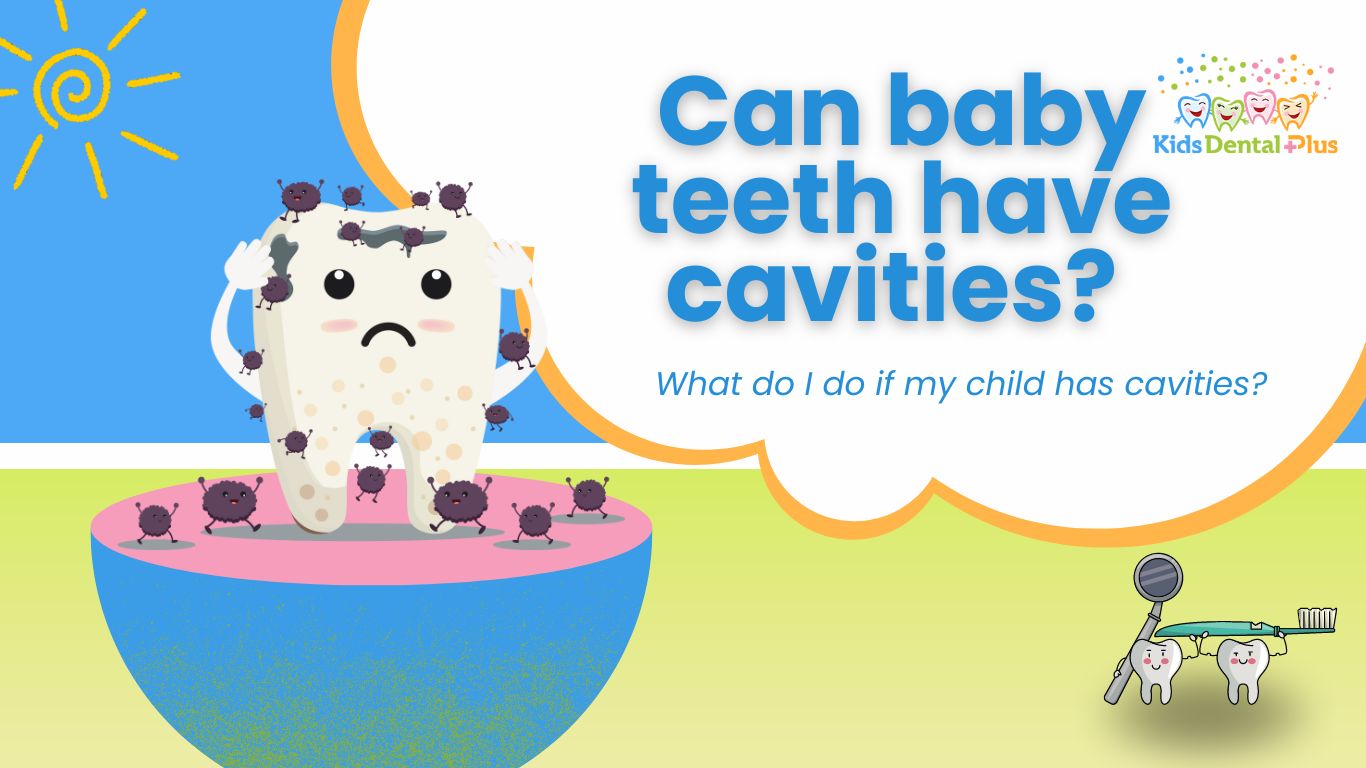Hello there, curious minds and proud parents! Today, we’re delving into a topic that concerns every child’s precious smile: cavities in baby teeth. Yes, it’s true – baby teeth can indeed develop cavities. We’re here to shed some light on this matter and introduce you to Kids Dental Plus, your partner in pediatric dental care.
What Are Baby Teeth?
Let’s start with the basics. Baby teeth, also known as primary teeth, are the first set of teeth that make their grand entrance into your child’s mouth. Typically, they begin showing up around the age of six months and stick around until their permanent teeth are ready to take their place, usually between the ages of 6 and 7.
Why Are Baby Teeth Important?
You might be wondering, “Why should we bother with these temporary teeth when the permanent ones are on the way?” Well, baby teeth play a significant role in your child’s overall oral health:
- Chewing: Baby teeth help your child grind and chew food properly, aiding in digestion.
- Speech Development: These teeth are essential for clear pronunciation and speech development.
- Space Savers: They act as space holders, ensuring there’s enough room for permanent teeth to emerge correctly.
Can Baby Teeth Develop Cavities?
Now, let’s address the main question: Can baby teeth really get cavities? The answer is a resounding YES! Baby teeth are susceptible to cavities, just like adult teeth.
Cavities, also known as dental caries or tooth decay, occur when harmful bacteria in the mouth produce acids that erode tooth enamel, resulting in tiny holes or cavities. These cavities can cause discomfort, making it challenging to eat and maintain good oral hygiene.
What Causes Cavities in Baby Teeth?
Several factors can contribute to cavities in baby teeth:
- Sugary Foods: Excessive consumption of sugary snacks and drinks provides fuel for the harmful bacteria responsible for cavities.
- Poor Oral Hygiene: Inadequate or infrequent brushing and flossing can lead to the buildup of plaque, increasing the risk of cavities.
- Insufficient Fluoride: Fluoride is a mineral that strengthens tooth enamel. Insufficient fluoride intake can make teeth more susceptible to cavities.
- Bacterial Transfer: Cavities can spread from person to person. Sharing utensils, drinks, or even kisses with someone who has cavities can transfer the bacteria responsible.
How to Prevent Cavities in Baby Teeth
Now that we understand that baby teeth can indeed develop cavities, let’s explore ways to prevent them:
- Regular Oral Care: Ensure your child brushes their teeth twice a day with fluoride toothpaste and flosses daily to remove food particles and plaque.
- Healthy Eating Habits: Limit sugary snacks and drinks, and encourage the consumption of tooth-friendly foods like fruits, vegetables, and dairy products.
- Dental Check-ups: Schedule regular dental visits for your child, even though baby teeth are temporary. Dentists can identify and address cavities in their early stages.
- Fluoride Treatments: Your dentist may recommend fluoride treatments or dental sealants to fortify tooth enamel.
Discover Kids Dental Plus!
Now that you’re aware of the importance of caring for baby teeth, we’d like to introduce you to Kids Dental Plus, your trusted partner in pediatric dental care. Our expert team is dedicated to ensuring your child’s oral health and giving them the brightest, healthiest smile possible.
For inquiries or appointments, please feel free to contact us at +1 (954) 533-9639. We’re here to answer any questions you may have and provide the best dental care for your little ones.
Remember, a healthy smile starts with good oral habits, and Kids Dental Plus is here to make it happen. Keep those smiles shining bright!





